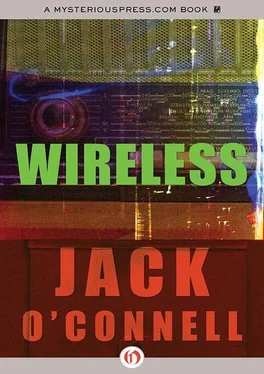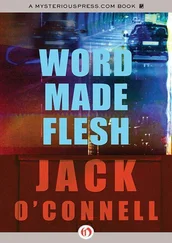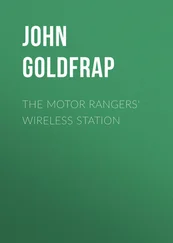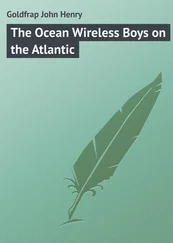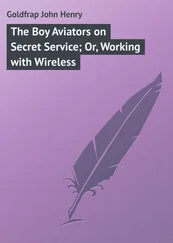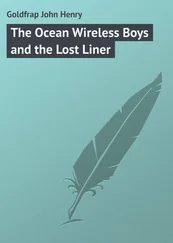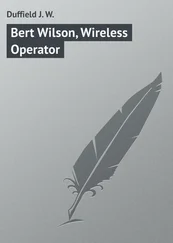“This is benzine.”
He brings the canister up to his mouth, grips the cap with his teeth, unscrews the top, and spits the cap to the floor.
“The Nigerians used to be crazy for this stuff a while back. Warring tribes used to pour it over their captives. Made for an unbelievable sight. A man on fire with this shit — it isn’t like he just burns. This is like rocket fuel, okay? You explode.”
Todorov makes a single frantic pull backward, a seizure-like move of absolute panic. Speer tightens his grip on the neck and begins to pour the benzine over the top of the priest’s head.
“Just like baptism, Father.”
He empties the canister and drops it.
“Coincidentally, you know who’s big on benzine death these days? That’s right. Your own little Hyenas, there. The little Cambodian fuckers. It’ll look like you and the Hyenas had a disagreement. But that was bound to happen.”
Speer gets ready, takes a breath, then lets another punch fly, connects at the bridge of the priest’s nose, hears the bone break. At the same time he releases his hold and Todorov’s head shoots backward, back into the confessor’s booth.
In a single, graceful motion, Speer swings out of the confessional, grabs his Zippo lighter from his jacket, thumbs up a flame, and tosses the lighter in on top of Todorov. There’s an explosive sound of air popping, a gustlike rush of noise that increases in volume and chokes out any scream as the priest’s body tumbles sideways out into the church, immediately unrecognizable, a crumbling tower of blue-green flame, an inferno of dizzying incineration of flesh, hair, fabric, and then, in seconds, bone, calcium, muscle, and marrow. It’s like staring into the corner of a canvas that depicts the lowest and most brutal level of hell, blown up into a close-up and made animate. Todorov’s body stops moving. The curtain of the confessional is transformed into blue flames. The worn carpeting starts to burn below the pile of imploding cleric. The wood of the confessional booth catches. It’s a species of burning, a breed of fire that most people never get a chance to see.
But Speer is already in his car and pulling onto Harrington Street, a new Torquemada in a Ford sedan, a rush playing through his body like a pure bolt of speed, as if the glands of some raging god have been planted at the base of his spine. And a small buzz starts up in his ear like a brilliant insect, congratulating him on his step over the line, on his entry into the world of action.
Wireless, despite its name, did not set out to become a meeting place for the city’s radio freaks, though its owners, Mr. Ferrie and Mr. Most, were both longtime broadcast buffs. They’d met locally, over at Jonas University, and spent four years together, locked inside the college station, restaging a lot of the pretelevision radio gags that had been popular in their parents’ era: d.j.’s on the air a week without sleep, ridiculous and endless fake interviews, “Louie, Louie” played for forty-eight hours nonstop.
They took the inevitable step over the line when, a week after the Kent State killings, they ran a mock War of the Worlds -type all-day news report concerning the seizure of the campus by fatigue-clad CIA commandos reporting solely to Spiro Agnew, and the subsequent courtyard execution, relayed in graphic blood-spurting detail, of the student newspaper editor, the women’s collective coordinator, and two-thirds of the philosophy department.
The dean’s office was not amused. Ferrie and Most were suspended for the balance of their final semester and never bothered going back for their degrees. With time on their hands and few employment prospects, they borrowed money from their parents and purchased a condemned 1920s lunch car that was oddly attached to a condemned former factory.
Their hope was to round up some hands-off investors and turn the place into Quinsigamond’s first cutting-edge, independent, underground radio station. The first prospective financiers didn’t stay long after it was revealed that the station would program, in Feme’s own words, “dramatic readings from the works of Herbert Marcuse — right alongside only the purest R&B.” Furthermore, they’d accept no commercial advertising. At this point one possible investor, an uncle of Most’s back in Newark, shook his head, confused, and asked, “No advertising? Where do I get my return?”
Ferrie and Most shook their heads back at him and said in unison, both their voices rising in pitch to accent the word’s last syllable, “Return?”
As the uncle threw them out of his home, Ferrie made an improvised pitch that they’d sell their blood on a regular basis.
Instead, they scrapped the radio station idea and reopened the diner as a diner. They cleaned the lunch car and fashioned enough Mickey Mouse repairs to placate the licensing board and, surprisingly, during the first month of operation, found they’d stumbled into the right market — blue plate specials for a blue-collar town. Neither was an expert chef, but they borrowed family recipes for meat loaf and chili and turned a modest and, at the time, somewhat embarrassing profit the first year.
Ferrie shocked himself by realizing he had a facility for business. Most uncovered a latent flair for design. They reinvested continually, eventually bought the ruined factory building grafted to their rear. They expanded, renovated the dim mill that had spun a century’s worth of machine parts from the sweat of immigrant labor. By the late seventies, the partners drifted onto the dangerous precipice of late-night hipness, and became nightclub mavens. They scored a liquor license, contracted live bands, sculpted a hazy-neon backstreet motif, suspended huge, original, local artwork on the now-chic exposed-brick walls. And Wireless became a certified hot spot.
Today, people pulling into the crushed-stone parking lot at 10 P.M., letting their headlights play off the unique structure gleaming deep-colored light and literally humming with an electric buzz, have a tendency to indulge in hindsight and state, “The place couldn’t miss.” But Ferrie and Most would be the first to tell anyone their fortunes rose on the uncontrolled tides of luck and weird social fads.
In their adjoining offices above the dance floor, they keep on the wall, framed in acid-proof matte and imported wood, lit by glareless, recessed lighting, color snapshots of the diner and factory as they existed on the day the partners took title: filthy and falling down, an occasional grave for junkies and derelicts, a nest for urban wild dogs, a fire trap, a blight on the landscape calling out for a John Deere bulldozer. Next to these are shots of the building as it exists today — sandblasted clean, hauled into the future without destroying the feel and look of the past.
In its present, pristine state, something about Wireless looks almost unreal, as if it were the product of Hollywood set designers and special-effects wizards. There’s a weird glow that seems to emanate from the diner when you see it from a distance, sitting at the end of the long, dead-end, gravel road. It looks like a streamlined train car designed by men drunk with optimism, crazed with hope for a future of limitless progress where technology paid as much heed to aesthetics as functionality. The diner always seems ready to lurch into motion, to start a frantic but absolutely smooth charge down a set of invisible tracks, powered not by steam or diesel or electricity, but rather by the sheer spectacle and insistence of the neon light that runs in sleek, flowing tubes along the edges of the structure.
The neon is a Halloween orange and it culminates on the roof of the lunch car where deco letters spell out the word DINER . Piggyback above the DINER sign is a huge deco-style capital letter G that gleams in yellow neon. A lot of the regulars are convinced the G has some special significance, that Ferrie and Most have coded some cryptic meaning into a single letter of the alphabet. But in fact, the G merely stands for the original diner owner’s name — Lennie Grimoire. Ferrie and Most could make that fact public and put an end to the rampant speculation and betting. But they live for exactly that air of vagueness and mystery and so the yellow-neon G is allowed to stand for everyone’s wildest interpretation.
Читать дальше
